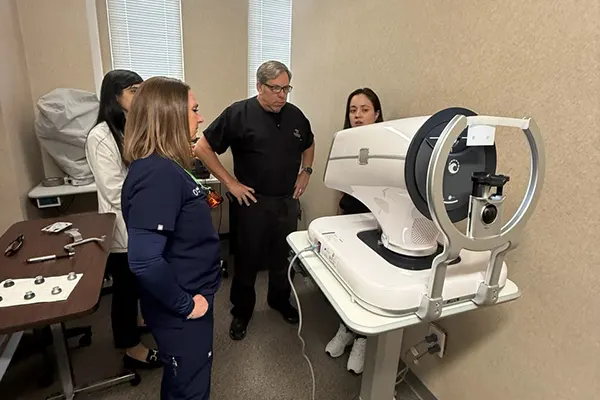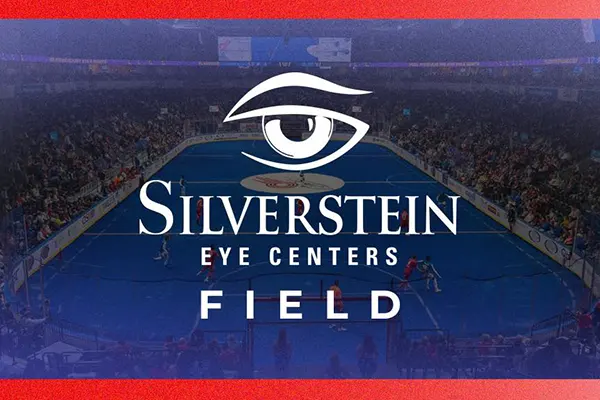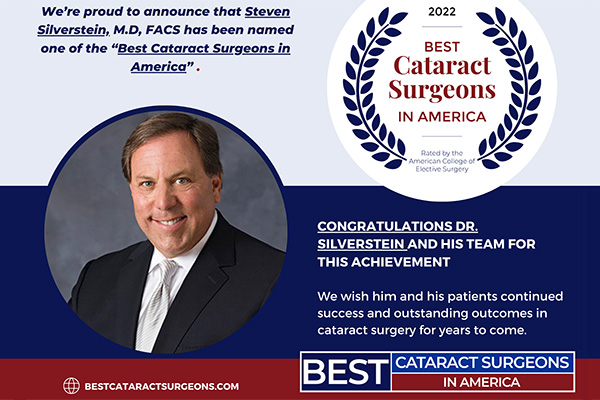Free Glaucoma Screening and Webinar
Silverstein Eye Centers Will Host a Free
Glaucoma Screening and Webinar
Glaucoma Screening and Webinar
The second annual World Glaucoma Day will be held on March 12, 2009, to increase public awareness of this serious eye disease. Glaucoma is the second most common cause of blindness in the US and the leading cause of blindness among African Americans. Despite the common occurrence of vision loss from glaucoma, many people are not aware of the dangers posed by glaucoma. In 2002, 30% of responders in a Prevent Blindness America survey had never heard of glaucoma while 50% of responders were unclear about the symptoms and causes of glaucoma. A lack of glaucoma awareness is complicating efforts to diagnose glaucoma in a timely manner, before it has significantly and irreversibly damaged vision.
Glaucoma is characterized by damage to the optic nerve — the nerve which transmits all visual information to the brain. In the early and moderate stages of glaucoma, clarity of vision is unaffected, but peripheral vision is gradually lost. Most patients are asymptomatic during this early stage of the disease. By the time clarity of vision is affected and patients seek attention, severe damage is present and blindness is often imminent. The patient loses all vision when the optic nerve is completely damaged.
Since symptoms only show up when significant peripheral vision loss has already occurred, routine glaucoma screening exams are recommended for patients at risk for glaucoma. The most significant risk factors for glaucoma include African American race, family history and age. African Americans are six to eight times more likely to acquire glaucoma and are more likely to become blind before age 65. All African Americans older than age 45 should have regular glaucoma screening exams. Glaucoma is also more common with increasing age and everyone over age 65 should have a yearly eye exam. Glaucoma risk is two times higher in children of glaucoma patients and four times higher in siblings of glaucoma patients.
There is no cure for glaucoma and damage is irreversible, so early diagnosis is crucial. When glaucoma is caught in its earliest stages on a regular screening exam, lowering eye pressure is very effective at preventing further vision loss. Treatment typically is initiated with eyedrops or laser treatment. In cases that do not respond to eyedrops or laser, surgical procedures can slow or halt vision loss.
It is estimated that about 4 million people in the US have glaucoma, but half are currently undiagnosed. If you have a family member with glaucoma, if you are over age 65, or if you are older than 45 and of African American descent, set up your glaucoma screening as soon as possible. Silverstein Eye Centers will host a free glaucoma screening day on March 12, 2009 from 8am to 4pm, by appointment only. Glaucoma seminars will be held at 8am and 12pm for those seeking more information about this important eye disease.


